Regular HVAC Filter Replacement for Cleaner Air and Lower Bills
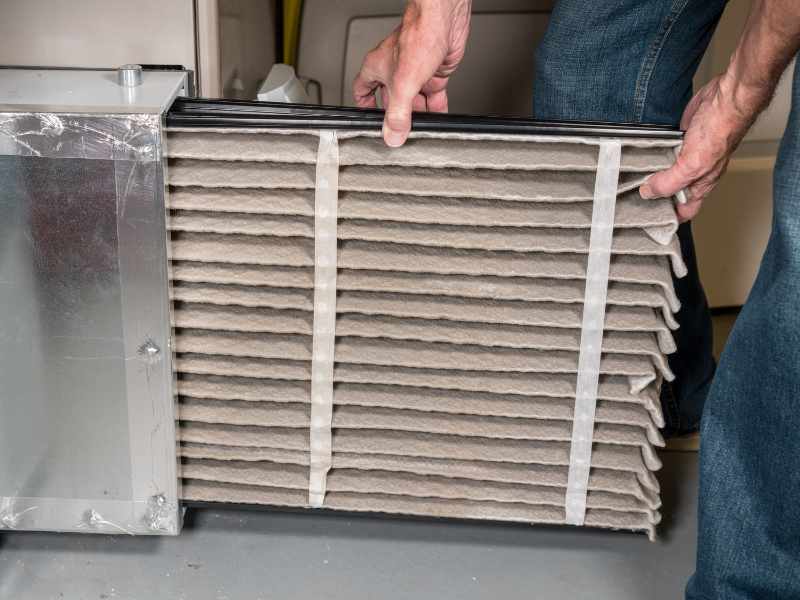
HVAC filter replacement might not grab the headlines like the latest smart home gadgets or solar energy trends, yet it plays a pivotal role in maintaining a comfortable, healthy, and efficient indoor environment. This unsung hero of home and commercial maintenance offers a straightforward solution to enhancing indoor air quality and ensuring your HVAC system runs smoothly. The significance of HVAC filter replacement lies in its ability to filter out pollutants, allergens, and other airborne particles, thereby safeguarding the health of occupants and prolonging the lifespan of the HVAC unit itself.
Key types of HVAC filters include Fiberglass, Pleated, and High-Efficiency Particulate Air (HEPA) filters, each offering different levels of efficiency and benefits. For those seeking a balance between cost and performance, Pleated filters provide a middle ground, while HEPA filters are the go-to choice for the highest level of air filtration. Delving deeper, each filter type brings its own array of advantages, from the affordability and simplicity of Fiberglass filters to the superior air quality improvement offered by HEPA filters.
This section will further explore the unique characteristics, recommended applications, and maintenance tips for each filter type, imparting a comprehensive understanding of how HVAC filter replacement can contribute to a healthier, more comfortable, and energy-efficient indoor space.
What is HVAC Filter Replacement?
HVAC filter replacement is the process of removing an old, clogged filter from your heating, ventilation, and air conditioning (HVAC) system and installing a new one. This essential maintenance task is key to preserving indoor air quality and ensuring that your HVAC system operates efficiently. HVAC filters are designed to capture dust, pollen, and other small particles, preventing them from circulating in the air or damaging the system’s internal components.
Over time, these filters can become saturated with contaminants and lose their effectiveness, necessitating their replacement. Whether you’re using a basic fiberglass filter, a more efficient pleated filter, or the highest standard HEPA filter, selecting the appropriate type and changing it regularly is crucial for maintaining a healthy and comfortable indoor environment.
Why Replace HVAC Filters?
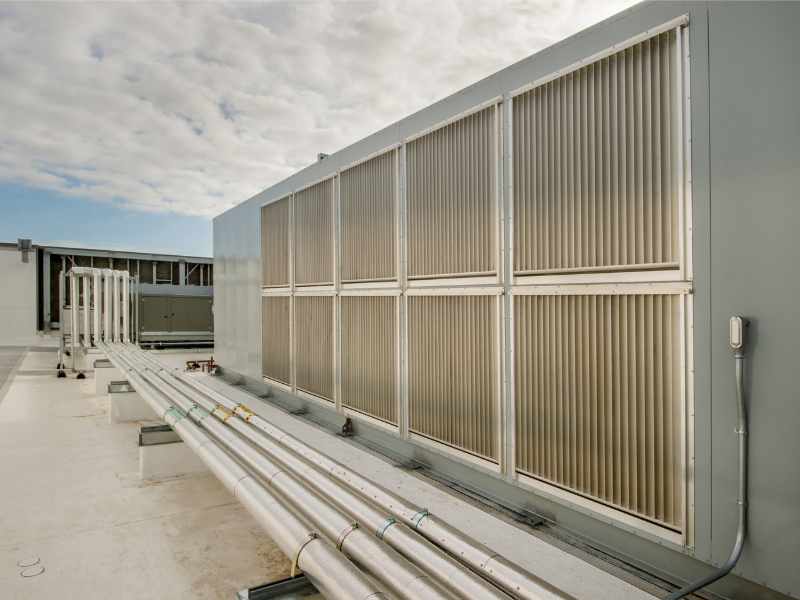
Replacing HVAC filters is crucial for maintaining a healthy and efficient indoor environment. Firstly, it improves indoor air quality by capturing dust, pollen, and other pollutants, which is particularly beneficial for individuals with allergies or respiratory conditions. Clean HVAC filters ensure that the air circulating in your home or office is fresh and free of harmful particles.
Secondly, regular filter replacement boosts system efficiency. When filters are clean, air flows more easily, allowing the HVAC system to operate smoothly without overexerting itself. This not only conserves energy but also reduces utility bills.
Lastly, changing your HVAC filters regularly helps to extend the system’s lifespan. Clogged filters can strain the system, causing wear and tear that might lead to early breakdowns. By keeping the filters fresh, you’re protecting your HVAC investment and ensuring it can heat and cool your space effectively for a longer time.
Improves indoor air quality
Changing HVAC filters regularly is key to eliminating pollutants such as dust, pollen, and other airborne particles. This action significantly enhances the air quality inside your home or office, offering a healthier environment for individuals with allergies or respiratory issues.
Boosts system efficiency
A clean filter ensures optimal airflow, enabling the HVAC system to operate more efficiently. This not only helps in maintaining a consistent temperature throughout your space but also contributes to lower energy consumption and reduced utility costs.
Extends system lifespan
By preventing the buildup of dirt and debris, regular filter replacements protect the HVAC system from unnecessary strain. This care helps to avoid premature wear and extends the lifespan of the system, ensuring it continues to heat and cool your space effectively for years to come.
When to Replace HVAC Filters?
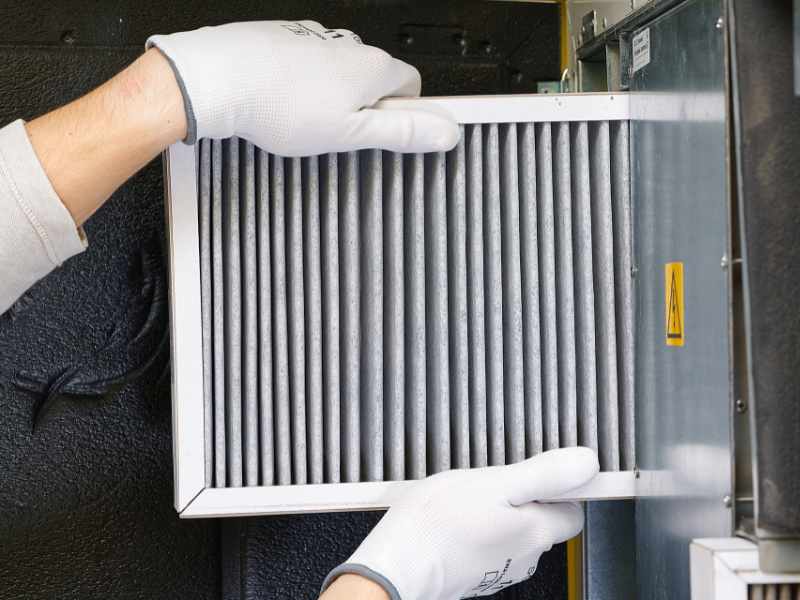
Knowing when to replace HVAC filters is crucial for maintaining your system’s health and efficiency. Typically, standard filters should be replaced every 3 months. For those using high-efficiency filters, a longer lifespan of up to every 6 months is expected before a replacement is necessary.
However, these guidelines can shift based on specific circumstances. For instance, living in high-pollution areas or having pets may require more frequent changes to ensure the air quality and system performance remain at their best. It’s advisable to regularly check your filters to decide the optimal timing for replacement, tailoring it to your unique environment and usage patterns.
Standard filters: every 3 months
Replacing standard HVAC filters is recommended every 3 months. This schedule is ideal for maintaining a clean and efficient system in environments with typical indoor air conditions.
High-efficiency filters: every 6 months
High-efficiency filters, such as those meeting HEPA standards, generally require replacement every 6 months. Their advanced design allows for extended use without sacrificing air quality or system performance.
More often in high-pollution areas
In settings exposed to higher levels of pollution or homes with pets, it may be necessary to replace filters more frequently than the usual intervals. Adjusting the replacement frequency ensures the HVAC system can effectively combat air contaminants and remain efficient.
ALSO READ: How Often Should Commercial HVAC Filters Be Changed?
Types of HVAC Filters
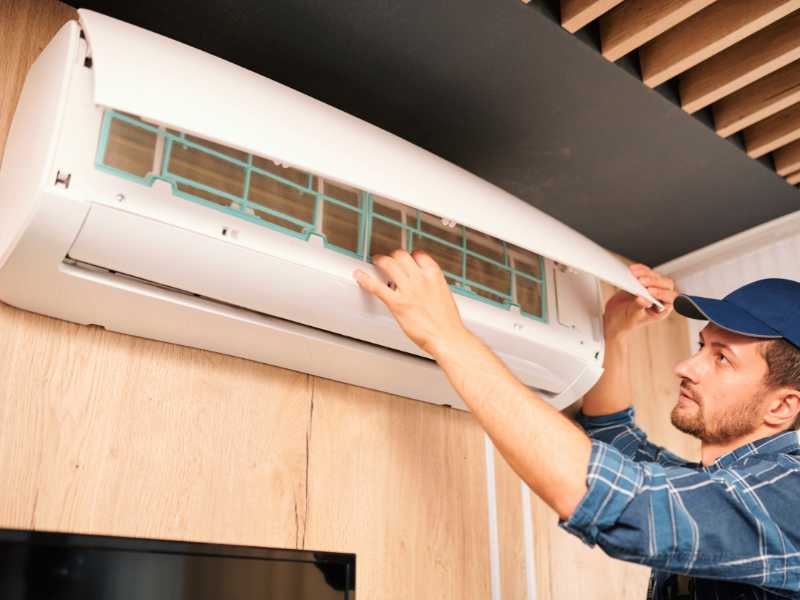
There are several types of HVAC filters, each offering different benefits and levels of filtration. Fiberglass filters are the most basic and affordable choice, effectively capturing large particles like dust and lint. For those looking for more efficiency, pleated filters provide a greater surface area to trap smaller particles, making them a better option for improved air quality.
At the top of the filtration spectrum, HEPA filters excel by capturing over 99% of airborne particles, including pollen, mold spores, and bacteria, representing the highest filtration standard. Selecting the right HVAC filter involves considering factors such as air quality needs, allergies, pet ownership, and budget. Each filter type offers a balance between cost, efficiency, and filtration capability, allowing you to tailor your choice to your specific requirements and ensure a healthier indoor environment.
Fiberglass filters: basic and affordable
Fiberglass filters stand out for their basic functionality and affordability. Primarily designed to catch large particles such as dust and lint, they serve as an economical choice for standard air filtration, providing a simple solution for homeowners looking to maintain a cleaner HVAC system on a budget.
Pleated filters: better efficiency
Pleated filters elevate air filtration efficiency by trapping a broader range of particles, including some of the smaller irritants that can affect indoor air quality. Their pleated design increases the filter’s surface area, enhancing its ability to capture dust, pollen, and pet dander more effectively than basic fiberglass options.
HEPA filters: highest filtration standard
For the ultimate in air purification, HEPA filters offer the highest filtration standard, capable of capturing at least 99.97% of particles as small as 0.3 microns. This includes allergens, bacteria, and virus carriers, making HEPA filters the premier choice for households requiring the cleanest possible air, such as those with allergy sufferers or respiratory issues.
Choosing The Right HVAC Filter
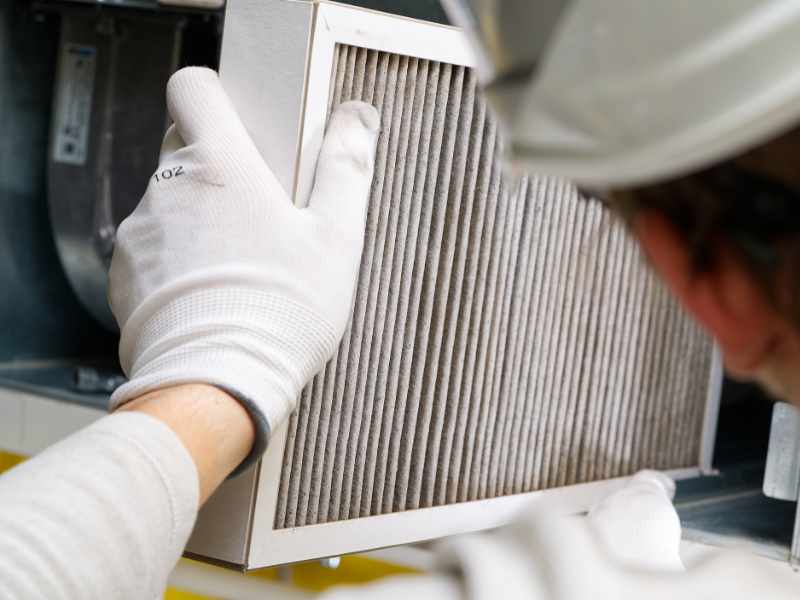
Selecting the right HVAC filter is essential for both improving indoor air quality and ensuring optimal system performance. Consideration of the MERV rating is crucial; this measure indicates the filter’s efficiency in trapping airborne particles. A higher MERV rating equates to finer filtration, capturing more and smaller particles, but it also demands more from your HVAC system in terms of airflow.
It’s equally important to choose the correct size for your filter to prevent unfiltered air from bypassing the filter entirely. Additionally, your specific needs, such as allergies, pets in the home, or indoor smoking, should guide your choice, as these factors can significantly impact the type of filter that will best suit your environment. By carefully assessing these elements, you can select an HVAC filter that not only maintains clean air but also supports the efficient and long-lasting operation of your heating and cooling system.
Consider MERV rating for filtration quality
Evaluating the MERV rating is essential when choosing an HVAC filter. This rating indicates the filter’s capability to trap various sizes of particles, with a higher MERV rating reflecting superior filtration performance. Opting for a filter with an appropriate MERV rating can significantly enhance the air quality in your home, capturing everything from common dust particles to finer allergens like pollen and mold spores.
Ensure the correct size for your system
It’s imperative to select a filter that fits your HVAC system perfectly. An incorrect size can lead to unfiltered air bypassing the filter, reducing the system’s efficiency and compromising indoor air quality. Always measure your existing filter or consult the system’s specifications to ensure you purchase the correct size.
Assess needs: allergies, pets, and smoking
Tailor your filter choice to your household’s specific needs. If allergies are a concern, a higher MERV rating can help by removing more allergens from the air. For homes with pets, look for filters that excel at capturing pet dander.
Similarly, if smoking is a factor, choose a filter designed to absorb smoke particles and odors, ensuring a cleaner breathing environment for everyone.
Steps to Replace an HVAC Filter
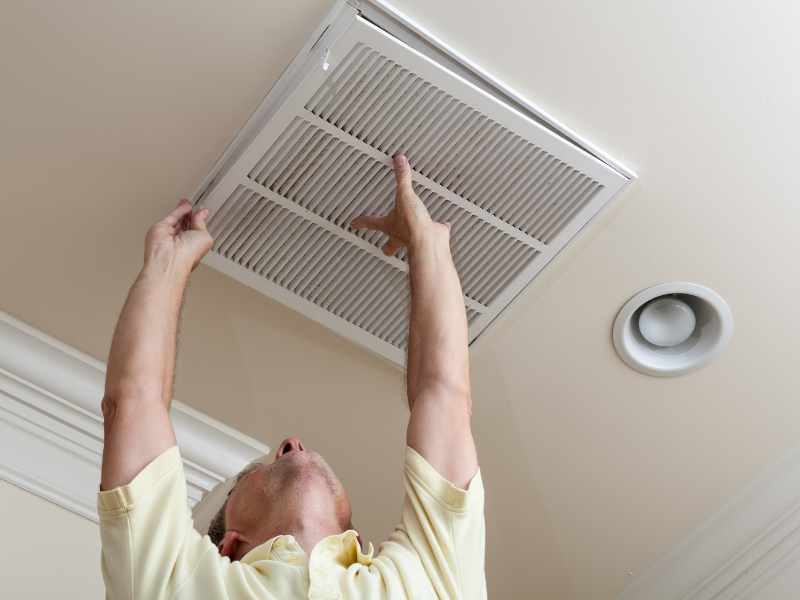
Replacing your HVAC filter is a key maintenance task that helps improve your system’s efficiency and the quality of your indoor air. Begin by turning off the HVAC system to ensure your safety during the process. Then, locate and open the filter compartment, typically found along the return duct or within the HVAC unit itself.
Carefully remove the old filter, noting its size and the direction of airflow indicated by arrows on its frame. With this information in hand, insert the new filter correctly, ensuring it faces the right direction. Finally, secure the compartment and turn the system back on.
Following these steps regularly will help keep your HVAC system running smoothly and your air clean.
Turn off the HVAC system
Begin the filter replacement process by safely turning off the HVAC system. This precautionary step is essential to prevent any airflow that might spread dust or debris while changing the filter.
Locate and open the filter compartment
Identify and open the filter compartment, typically found along the return duct or directly within the HVAC unit itself. Accessing the compartment is key to reaching the filter for replacement.
Remove the old filter carefully
With the compartment open, gently remove the old filter, being mindful to avoid dispersing the accumulated dust and allergens back into the air. This careful removal helps maintain the cleanliness of your indoor environment.
Check the old filter for size and type
Before disposing of the old filter, examine it for its size and type. This crucial information ensures you select the correct replacement filter, guaranteeing a perfect fit and optimal functionality.
Insert the new filter, direction matters
When placing the new filter into the compartment, make sure to align it according to the airflow direction indicated by arrows on its side. Proper orientation is vital for the filter to work effectively.
Secure the compartment and turn on the system
After installing the new filter, close and secure the filter compartment. With the new filter properly in place, you can now reactivate the HVAC system, enjoying the benefits of cleaner air and enhanced system performance.
Common HVAC Replacement Mistakes
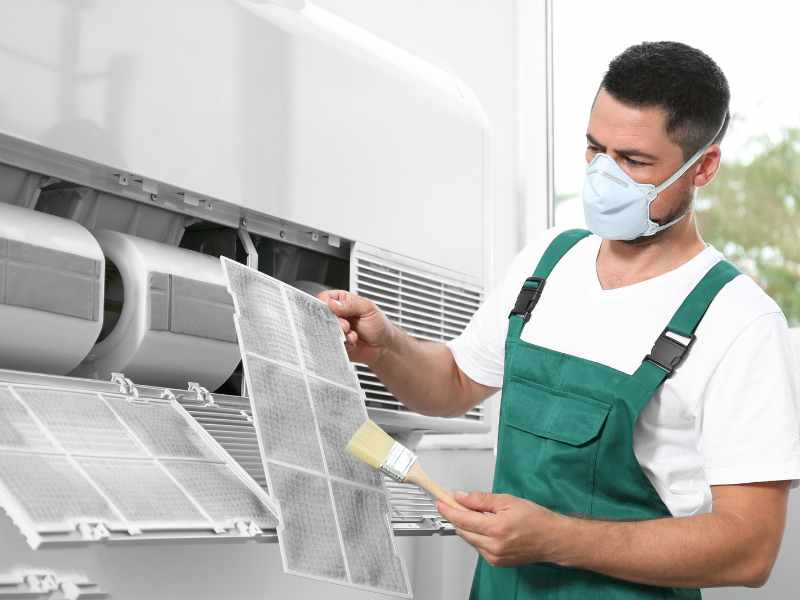
When it comes to replacing HVAC filters, avoiding certain pitfalls can significantly enhance both your indoor air quality and your system’s efficiency. A common mistake is ignoring the airflow direction on the filter; this oversight can lead to improper installation, undermining the filter’s effectiveness. Another error to avoid is neglecting the filter’s size and fit; a mismatched filter can result in unfiltered air circulating through your system, diminishing air quality.
Additionally, forgetting regular checks and maintenance can cause a filter to become overly clogged, placing unnecessary strain on the HVAC system and potentially leading to costly repairs. By being mindful of these common mistakes, you can ensure your HVAC system remains in top condition, providing optimal air quality and comfort.
Ignoring airflow direction on the filter
One common oversight is not paying attention to the airflow direction when installing a new filter. This mistake can lead to a decrease in air quality and an increase in energy use, as the system has to work harder to push air through the filter. Ensuring the filter is aligned with the system’s airflow direction is crucial for maintaining efficiency.
Neglecting the filter’s size and fit
Another key aspect is choosing a filter that properly fits your HVAC system. A filter that is too small or too large can allow unfiltered air to circulate, compromising the air quality and system performance. It’s important to measure your current filter or consult your system’s manual to find the exact size needed.
Forgetting regular checks and maintenance
Routine checks and maintenance are essential for keeping your HVAC system running smoothly. Neglecting to replace or clean the filter as needed can lead to a buildup of dust and debris, forcing the system to work harder, increasing energy costs, and potentially leading to premature system failure. Setting reminders for regular filter checks can help avoid these issues.
ALSO READ: Unlock Comfort: The Most Energy-Efficient HVAC Systems
In Summary
Regular HVAC filter replacement is essential for maintaining a healthy and efficient indoor environment. By choosing the right filter and adhering to a consistent replacement schedule, you can significantly improve indoor air quality, enhance system efficiency, and extend the lifespan of your HVAC unit. Understanding the different types of filters and their benefits will help you make informed decisions that contribute to a more comfortable and energy-efficient home.
Ready to experience the benefits of a well-maintained HVAC system? Contact Callidus Air today for expert HVAC maintenance and filter replacement services. Ensure your home stays comfortable and your air stays clean with our professional solutions.
